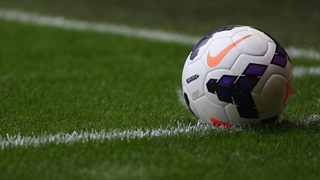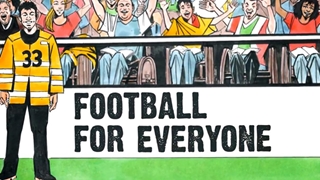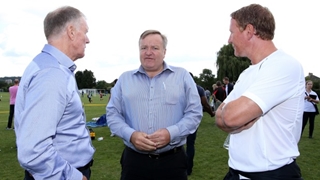
The work of the NSPCC and its long standing relationship with The FA, through the Child Protection in Sport Unit (CPSU), has been recognised by UEFA, after being awarded as its Charity Partner in Monaco this week.
The NSPCC has been awarded €1m.
Director of the CPSU, Anne Tiivas, said: “We are thrilled to be awarded the UEFA charity cheque which will help us to keep children safe in sport and give them a voice.
"It will enable us to influence more sports organisations, coaches, schools and parents on the role they need to play in protecting children and how to be most effective.
"Crucially it will also help us to let even more children know how to contact ChildLine when they need someone to talk to.
"Through running awareness raising campaigns on where to go for help and supplying training resources for the sports community about how to identify abuse and where to report it this money will really make a difference for children.
"People working in sport can end up being a real lifeline for children who are being abused or neglected – and with our research estimating that in the UK only one in nine children at risk are currently receiving support - we believe the two million sports sector workers across the UK alone can play a vital role in protecting them.
"With the support of organisations like UEFA, we can ensure that we are all working together to do everything possible to make sports like football a safe place for children. Through our links with international sports organisations we can also influence initiatives to keep children safe in sport across Europe and beyond.”
Former Chelsea, Blackburn Rovers and England left-back Graeme Le Saux is a fervent backer of the NSPCC's work.
He added: “Giving children the best possible experience around football, it doesn’t mean they are then going to be the next generation of professional elite players, but what it does do is that it engages with them, it gives them an outlet.
"And if that’s done in a safe protected environment then we are all benefiting, because those people will stay involved with the game, whether it be at an amateur level or indeed a professional level.”
The NSPCC endorsed The FA’s three-hour Safeguarding Children workshop, which is mandatory for all new coaches, referees, medics and welfare officers (training 30,000 people annually) and raises awareness and educates on the core issues.
In addition, The FA set up a voluntary network of Child Protection Officers in their County Associations. This has evolved in to a paid professional workforce of approximately 50 part-time or full-time County Welfare Officers since 2008.
It’s this body of work which, according to The FA’s Director of Football Governance and Regulation, Darren Bailey, makes the NSPCC worthy winners
He said: “I am delighted that we have actually now worked with the NSPCC for around 15 years.
"Back in 1999 we came together and helped with a taskforce that they were putting together to look at tackling the issues of safeguarding... and abuse of children within sport.
"So we’ve had a long relationship, and a very fruitful relationship.”
The funding will provide free e-learning resources to community-based sports groups and working with football to provide support to complement FA programmes.
It will also help delivery of a high-profile 3-year awareness-raising campaign for children and parents in the UK about keeping children safe in sport, using social media and other communications channels.







